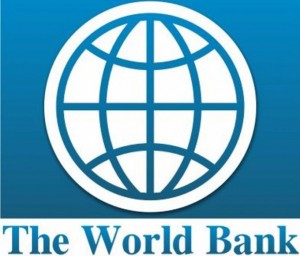Economic growth in Africa to recover to 2.6% in 2017
 The economic growth in sub-Saharan Africa is projected to recover to 2.6 per cent in 2017 following a sharp down turn in 2016, according to the latest World Bank report – Africa’s Pulse.
The economic growth in sub-Saharan Africa is projected to recover to 2.6 per cent in 2017 following a sharp down turn in 2016, according to the latest World Bank report – Africa’s Pulse.
The latest growth rate is an improvement on the 2016 rate which stood at 1.3 per cent.
The report released today, April 19, 2017 by the World Bank Group shows an upturn in economic activity which is expected to continue in 2018-19, reflecting improvements in commodity prices, a pickup in global growth, and more supportive domestic conditions.
This sounds good to African governments but Albert G. Zeufack, the Bank’s Chief Economist for the African Region, says it is not good enough because Africa is growing slowly in per capita terms and the recovery remains weak, with growth expected to rise only slightly above population growth.
This year’s report notes that although Nigeria, South Africa, and Angola, the continent’s largest economies are seeing a rebound from the 2016 slowdown, recovery has been slow due to insufficient adjustment to low commodity prices and policy uncertainty.
Adding to that, several oil exporters in the Central African Economic and Monetary Community (CEMAC) are facing economic difficulties.
The report notes that seven countries – Cote d’Ivoire, Ethiopia, Kenya, Mali, Rwanda, Senegal and Tanzania continue to exhibit economic resilience, supported by domestic demand, posting annual rates above 5.4 per cent in 2015-2017.
It adds that these countries house nearly 27 per cent of the region’s population and account for 12 per cent of the region’s total GDP.
The continent’s aggregate growth is expected to rise to 3.2 per cent in 2018 and 3.5 per cent in 2019, reflecting a recovery in the largest economies, it pointed out, explaining that risks on the domestic front to the current recovery stem from an inadequate pace of reforms, rising security threats and political volatility ahead of elections in some countries.
For Africa to achieve the modest rebound, Zeufack further recommends that “the continent needs to create an enabling environment to attract investors, since governments alone do not have the resources to close the gap in infrastructure reforms.
Africa must create great Public Private Partnerships (PPP), to attract investors since the gap in infrastructural development is so huge that governments intervention alone cannot help,” he said.
He further debunked the perception that there are no good PPP investors in Africa and added that “all we need to do is create an enabling environment for them.”
“With poverty rates still high, regaining the growth momentum is imperative and growth needs to be more inclusive and will involve tackling the slowdown in investment and the high trade logistics that stand in the way of competitiveness, the Bank ‘s Lead Economist and author of the report , Punam Chuhan-Pole remarked.
She observed that the fiscal deficit is widening and called for judicious borrowing and proper management of borrowing to avoid interest rate risks.
By Pamela Ofori-Boateng
Copyright ©2017 by Creative Imaginations Publicity
All rights reserved. This news item or any portion thereof may not be reproduced or used in any manner whatsoever without the express written permission of the publisher except for the use of brief quotations in reviews.
